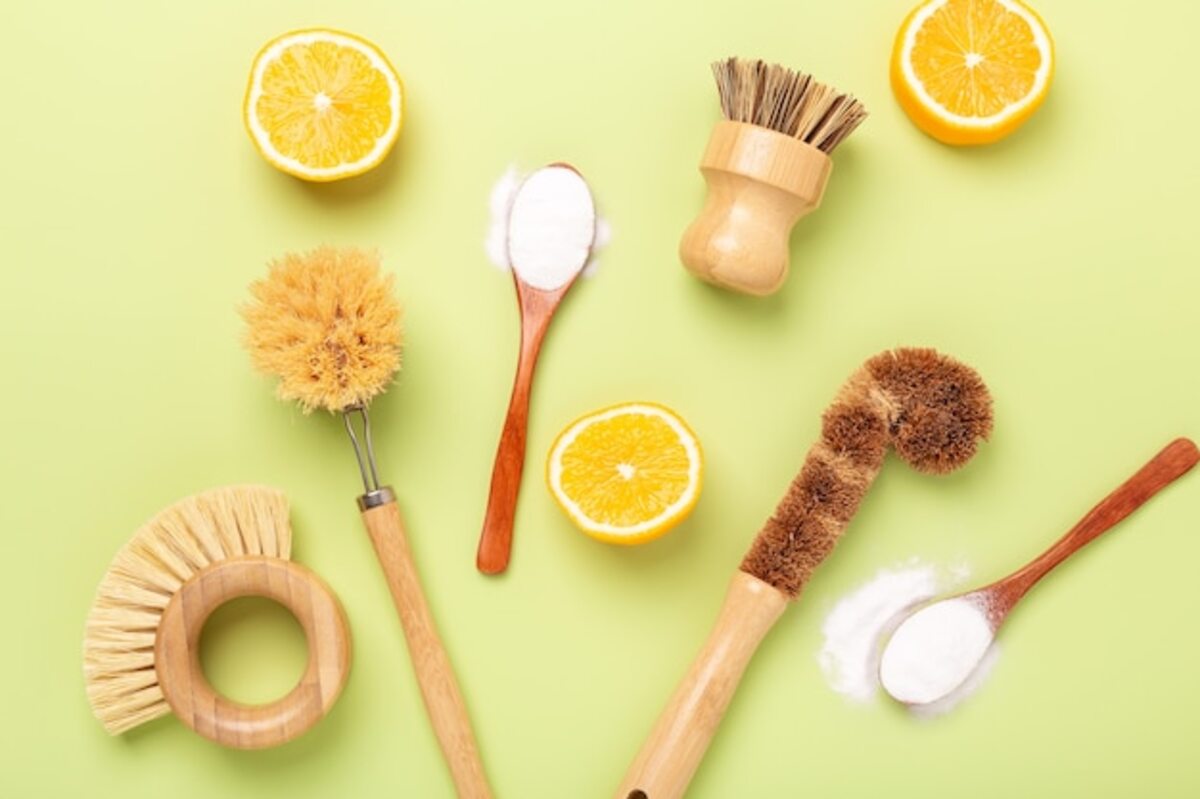Essential maintenance for a always spotless and functional kitchen

Keeping your kitchen in pristine and functional condition is not just a matter of aesthetics, but also of health and efficiency. In this article, we will explore the essential maintenance you need to implement to enjoy a culinary space always ready for action. From cleaning surfaces to caring for appliances, every detail matters to achieve a kitchen that inspires and functions perfectly. Don’t miss these practical tips that will transform your cooking experience!
The importance of daily cleaning: simple habits to avoid build-up.
Daily cleaning in the kitchen is a habit that can make the difference between a cozy and functional space and one that becomes a focal point of clutter and dirt. Spending a few minutes at the end of each day to clean the surfaces, pick up the utensils, and wash the dishes not only prevents the buildup of grease and food residues but also creates a healthier environment. By establishing a simple cleaning routine, such as sweeping the floor or wiping down the countertops after cooking, you can prevent small tasks from turning into big problems in the long run.
In addition, incorporating daily habits such as disinfecting handles, faucets, and other high-contact areas can significantly reduce the spread of germs in your kitchen. Don't underestimate the power of these simple actions: keeping spaces organized will allow you to quickly find what you need during the preparation of your dishes. With a little dedication each day, you will achieve a kitchen that not only looks impeccable but also functions optimally, making it the vibrant heart of the home where you will enjoy cooking with pleasure.
2. How to organize your utensils and improve the functionality of the space.
Organizing your kitchen utensils is essential to maximize the functionality of the space and facilitate workflow while cooking. Start by categorizing the utensils according to their use: group knives, spoons, spatulas, and other essential tools in an easily accessible place. Use drawer organizers or shelves inside cabinets to prevent them from mixing and becoming cluttered. You can also consider hanging some utensils on the wall with magnetic hooks or a stainless steel rod, which not only saves space on surfaces but also adds a decorative touch to your kitchen.
It is also important to pay attention to the arrangement of appliances and other key elements in your kitchen. Make sure everything is within reach and in its designated place; for example, place the blender near the preparation area where you will use it frequently. If you have small appliances that you rarely use, consider storing them in high cabinets or less accessible areas to keep the countertops clear. This organization will not only improve efficiency while cooking but also allow you to enjoy the process more without distractions or unnecessary clutter. Remember to periodically review your organization system to adjust what you no longer need or redistribute utensils as your cooking habits change.
3. Preventive maintenance of appliances: extends their lifespan.
Preventive maintenance of appliances is one of the keys to ensuring that your kitchen remains in optimal condition and functions like new. By performing regular cleanings and periodic checks, you can detect problems before they become costly repairs. For example, cleaning the filters of the extractor hood or descaling the coffee maker not only improves their performance but also extends their lifespan. A simple monthly check can work wonders in maintaining the efficiency of your devices, thereby avoiding energy waste and ensuring that each function is carried out smoothly.
Additionally, it is important to follow the manufacturer's recommendations for the specific care and maintenance of each appliance. This includes aspects such as proper installation, appropriate use of the available programs, and adherence to suggested cleaning guidelines. Often, the small details make the difference; for example, ensuring that the rubber seals on the refrigerator doors are clean and in good condition can prevent cold air leaks and help keep food fresh for longer. Thus, a constant commitment to preventive maintenance not only ensures a healthier and more efficient cooking environment but also allows you to fully enjoy the art of cooking without unexpected interruptions.
4. Tips for cleaning faucets and sinks: instant shine and disinfection.
Cleaning faucets and sinks is a crucial part of kitchen maintenance, as these areas are prone to accumulating grease, hard water, and germs. To achieve an instant shine, start by using a mixture of warm water and mild soap to remove surface dirt. You can use a microfiber cloth or a non-abrasive sponge to avoid scratching the surfaces. After rinsing with clean water, dry it with another dry cloth to prevent water spots and maintain that shiny appearance we all desire.
To effectively disinfect your faucets and sinks, consider using white vinegar or a diluted bleach solution, always ensuring to follow the manufacturer's instructions for safety. Apply the disinfectant and let it sit for a few minutes before rinsing thoroughly with water. This step not only eliminates bacteria and germs but also helps prevent the buildup of minerals that can dull the shiny finish of the faucet. With these simple tips, you can enjoy a clean and hygienic space that complements the functionality of your kitchen.
5. Proper care of surfaces: suitable materials and products.
Proper care of kitchen surfaces is essential for maintaining a clean and safe environment. Each material, whether granite, wood, stainless steel, or laminate, has specific requirements that must be addressed to extend its lifespan and preserve its appearance. For example, granite surfaces require a special sealer to protect them from stains and bacteria, while wood needs natural oils to prevent cracking. Understanding these characteristics will allow you to choose the most appropriate cleaning products and avoid irreversible damage.
In addition to using specific products for each type of surface, it is crucial to follow proper cleaning techniques. Using soft, non-abrasive cloths can make a difference in preserving the finish of your furniture and countertops. Avoiding excessive water usage on surfaces like wood also helps prevent warping and swelling. Investing time in the precise care of each material not only optimizes the functionality of the space but also ensures that your kitchen always looks impeccable, ready to host both your loved ones and the best dishes you can create.
6. Strategies to keep your refrigerator in optimal condition.
Keeping your refrigerator in optimal condition is essential for maintaining food freshness and avoiding waste. One of the most effective strategies is to establish a cleaning routine. Perform a deep clean at least once a month, ensuring you remove all food and clean the internal surfaces with a mild detergent and warm water. Don't forget to pay attention to the door seals, where dirt can accumulate, as this can affect the sealing and make your refrigerator work harder than necessary.
Another key aspect is to properly organize the contents of your refrigerator. Make sure to store food according to its type and expiration date, placing the older products at the front to use them first. Additionally, regularly check the internal temperature; ideally, it should be between 0°C and 4°C to keep food fresh and safe. Finally, avoid overloading it, as this can hinder the proper circulation of cold air and decrease its efficiency. By following these simple strategies, you can enjoy not only a cleaner refrigerator but also a more functional and healthy kitchen.
7. The relevance of pest control: a healthy environment in your kitchen.
The kitchen is the heart of the home, and keeping it pest-free is essential to ensuring a healthy environment. Infestations of insects or rodents not only compromise the cleanliness and appearance of the space but can also pose serious health risks. These intruders can contaminate food and spread diseases, highlighting the importance of implementing effective preventive and control measures. Early detection and proper management of any signs of pests are key actions that should be part of the regular maintenance of your kitchen.
To ensure a safe environment, it is crucial to adopt good practices such as proper food storage, constant cleaning of surfaces and utensils, and sealing cracks or crevices where pests may enter. Additionally, consider using natural methods or specific products for pest control that are safe for use in areas where food is handled. By prioritizing pest control within the overall maintenance plan, you not only protect your kitchen but also promote a more enjoyable and efficient culinary experience in a healthy environment.



